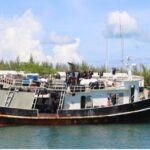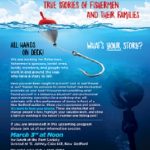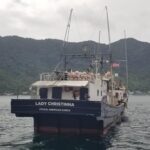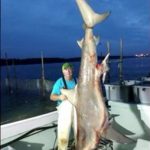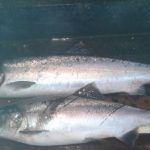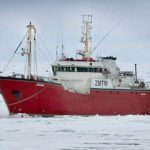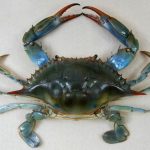Tag Archives: Gulf of St. Lawrence
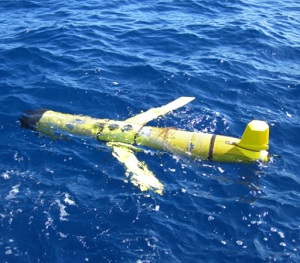
Underwater gliders will monitor North Atlantic right whales in the Gulf of St. Lawrence
The newest glider will carry a hydrophone, which can identify the calls of right whales and report their locations,,, “There is no one way to effectively determine where the whales are at any given moment when they are in the Gulf of St. Lawrence,” Fred Whoriskey said, “So we need to start blending our approaches.” Aerial surveillance is only good on sunny days with few waves, he said, adding that hydrophones mounted on fixed buoys have their limitations. “This year we are deploying gliders into the shipping channels,” he said. “They go down, listen and detect whale calls and come up to the surface periodically and broadcast information whether there are whales there or not.” >click to read< 11:25
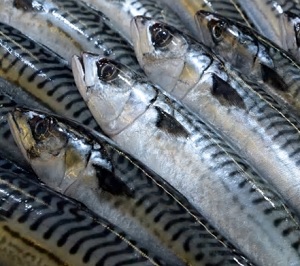
Canada cuts Atlantic mackerel quota in half to ‘rebuild stock’, to be released in two phases to ensure access
Canada has slashed the quota in half for Atlantic mackerel, from 8,000 tonnes last year to 4,000 tonnes this year. “This is a difficult decision that has economic impacts on commercial harvesters and their communities, but the science is clear: stronger actions need to be taken to rebuild the Atlantic mackerel stock,” said Federal Fisheries and Oceans Minister Bernadette Jordan in a news release Friday. That will help ensure fishermen in Newfoundland, where mackerel arrive later in the year, get access to some quota. >click to read< 08:03
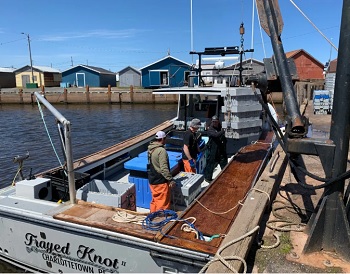
Lobster fishing 101: Everything you wanted to know! From Setting Day to Fishers pay!
In early May, hundreds of Prince Edward Island fishing boats head out into the waters of the Gulf of St. Lawrence to sink their traps and bring back lobsters,,, Jada Yeo has been a fisherman’s helper aboard her father David’s boat, Let Her Go, for the past six years, since she graduated from high school. Sheila Eastman has been North Lake’s harbour manager for 20 years, and is like a mother to most of the fishermen. In fact, her son, one of her brothers and other relatives fish out of North Lake. From Setting Day, lobster boats, sharing up, fishing areas, and terminology preferences such as fishers, fisherman, fisherwoman, with lots of photos!, >click to read< 13:12
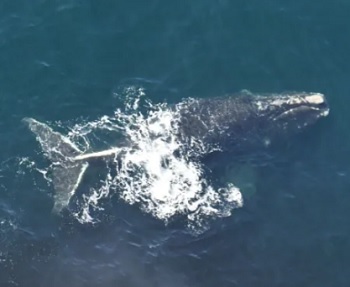
Two North Atlantic Right Whales detected in the Gulf of St. Lawrence cause a season long fishing area closure
As a result, an area east of the Iles-de-la-Madeleine is closed to fishing activities until Nov. 15, while some surrounding areas will close at 5 p.m. on Saturday until further notice. DFO provided a 72-hour notice because of the weather forecast and to allow time for fishing gear to be removed. The crab fishing area known as 12F, east of the Iles-de-la-Madeleine, remains under a 15-day closure that began after the first whale of the year was spotted in late April. >click to read< 13:22
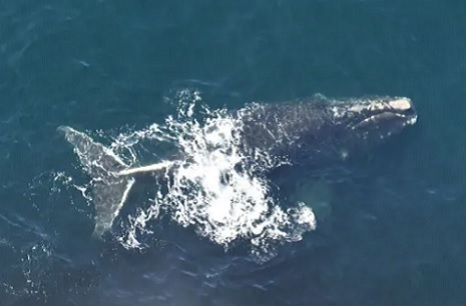
Right whale spotted in Canadian waters, DFO imposes 15-day crab fishing closure
The first North Atlantic right whale of the season has been sighted in Canadian waters, triggering an early and localized snow crab fishery closure in the Gulf of St. Lawrence. Observers flying in a plane spotted the whale Sunday afternoon northeast of the Magdalen Islands in the Cabot Strait.,, DFO said Monday it has responded. “This sighting has triggered a 15-day fishing closure in crab fishing area 12F,” the department said in a statement. Fishing area 12F is east of the Magdalen Islands. >click to read< 17:44
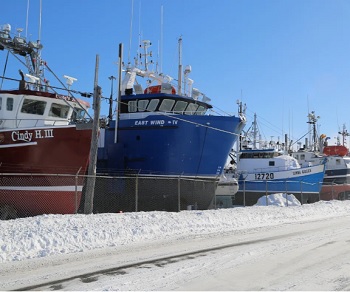
Icebreakers are clearing the way for early Snow crab season with less risk for right whales
New Brunswick’s lucrative snow crab industry is just weeks away from a head start to the season, could result in higher revenue and less risk for North Atlantic right whales. Icebreakers from the Canadian Coast Guard and contracted boats began clearing the waters near Shippagan and Caraquet on the Acadian Peninsula over the weekend. Gilles Thériault, who lives in Tracadie, said fishermen are thankful for the icebreakers. “The quicker we catch our quota, the less danger there is of whales being trapped into ropes,” he said. “We hope that the vast majority of the quota will be caught before the whales arrive.” >click to read< 15:43

Canada outlines its 2021 measures to protect North Atlantic right whales
The Government of Canada remains committed to protecting the endangered North Atlantic right whale. To help prevent entanglements with fishing gear, Fisheries and Oceans Canada is building on last year’s successful measures by continuing to close fishing areas wherever and whenever North Atlantic right whales are present in the Gulf of St. Lawrence, Bay of Fundy, and Roseway Basin Critical Habitat,,, To help prevent collisions with vessels, Transport Canada will be re-implementing its 2020 season measures, including a restriction on vessel speed throughout much of the Gulf of St. Lawrence to protect areas where whales are detected,,, >click to read< 17:06

New DFO regulations, 30 major commercial stocks have been identified for rebuilding
Canada is putting into law a requirement that it rebuild depleted commercial fish stocks, starting with 17 stocks that include Atlantic cod off Newfoundland, spring spawning herring in the Gulf of St. Lawrence and three Pacific salmon stocks. They account for more than half the 30 major commercial stocks identified for specific protection in amended Fisheries Act regulations published Jan. 2. >click to read< 11:33
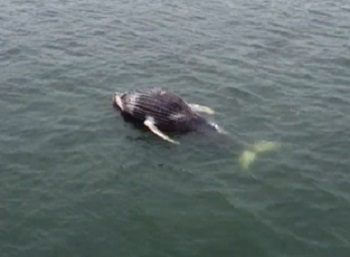
Slowing down big ships not enough to protect right whales from fatal strikes
Current speed restrictions for ships moving through Canadian waters will not prevent North Atlantic right whales from being killed if struck, according to new research that also determined smaller vessels are capable of deadly impacts. “Slowing big ships down does not reduce the death rate as much as we hoped it would,” said Brillant, adding that larger ships obeying current speed restrictions in the Gulf of St. Lawrence, where many right whales feed in the summer, still have an 80 per cent chance of killing a whale if one is struck. >click to read< 08:57
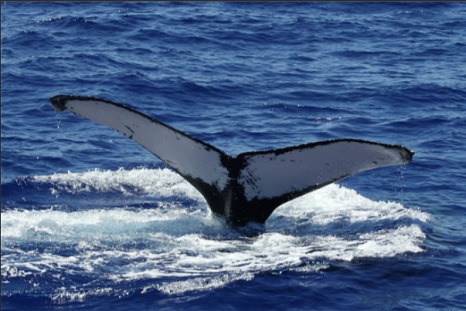
No North Atlantic Right Whale Deaths In Canadian Waters This Year
It has been a good year for the endangered North Atlantic right whale in Canadian waters. Federal officials say no deaths or new entanglements have been reported to date. The government credits “significant” action taken to help protect the whale. A new season-long fishing area closure protocol was introduced in the Gulf of St. Lawrence based on where whales were detected. Fisheries and Oceans Canada also expanded the scope of where temporary and season-long closures were applied. >click to read< 15:50
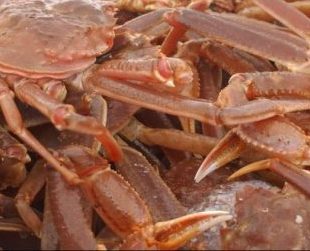
Snow crab fishing rights: First Nations leaders say they’ll drop court action if government agrees to mediated settlement
The chiefs of Madawaska and Tobique First Nations say they have been seeking to exercise their treaty right to fish snow crab for 25 years, and point to volatile protests over lobster fishing as an example of the consequences of letting such disputes go unresolved. “Our Aboriginal right to engage in the fishery is not being recognized, the consequence of that is playing out before us in Nova Scotia,” Tobique Chief Ross Perley said in a news release Tuesday. >click to read< 12:04
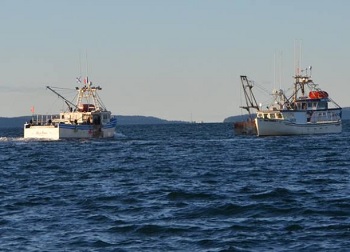
The historic ups and downs of the Acadian-Mi’kmaq relationship
Mi’kmaq fishermen, emboldened by a decades-old Supreme Court of Canada ruling affirming their treaty right to hunt, fish and gather in pursuit of a moderate livelihood, spent another day trying to drop their lobster traps in the waters there. Pitted against them were non-indigenous fishers who claim that the natives are threatening the local lobster fishery’s sustainability, and who have been making their point by cutting First Nation traps, and trying to pressure buyers not to purchase their harvest. Once again, the federal government stood mutely by, unwilling to clarify the question of what constitutes a “moderate livelihood” fishery, and then, by omission, further fuelling a situation that looks like it could turn violent at any moment. It sounds, therefore, strangely like the scene I encountered 21 years ago in Burnt Church, N.B. >click to read< 17:38
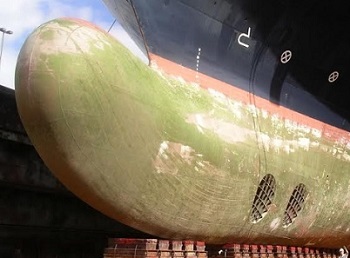
The Judge has ruled! NMFS must list the North Atlantic Right Whale entanglement facts on paper. Case Closed!
Judge Boasberg has ruled! A new accurate ESA analysis has been ordered by next June. The National Marine Fisheries Service just needs to put the lobster entanglement facts on paper and it’s “Case Closed” Not only was there an unusual mortality event in the Gulf of St Lawrence. The Right Whales stopped reproducing. Basically the whales moved up into the South West Gulf of Saint Lawrence in 2015 and took the crab fishermen by surprise and also they set up feeding on copious copepods at the mouth of the St Lawrence River where the Spring flood of nutrients kicks off phytoplankton blooms. Unfortunately this is directly under a shipping lane used solely by cruise ships who traveled at night starting at the end of April.,, by Jim O’Connell, >click to read< 20:26
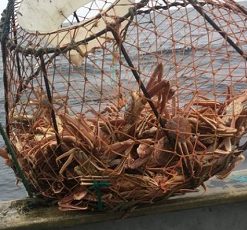
Cape Breton snow crab fishery escapes impact of right whale closures, Different story in New Brunswick
While a right whale sighting earlier this month triggered a closure to the snow crab fishery in western Cape Breton, the closure had virtually no impact. But unlike closures in other parts of the Gulf of St. Lawrence, these shutdowns had virtually no impact on the area’s lucrative fishery. “That’s something we’re discussing. Are we lucky or are we just in that sweet spot?” said Basil MacLean, a Cape Breton snow crab fisherman and president of the Area 19 Snow Crab Fishermen’s Association. In New Brunswick, where the boats and quotas are larger, it’s been a different story in 2020. “24 out of 45 members from the Acadian Crabbers Association each left significant amounts of crab in the water this spring,” >click to read< 19:15

Whale info way off, by Maine Lobsterman Leonard Young
Reading Bill McWeeny’s July 23 commentary bothered me a great deal. His statement that right whales have never been so close to extinction since they were hunted is untrue. I’ve been a lobsterman for almost 50 years, and we’ve been dealing with the whale issue for almost two decades. When we started this process, we were told there were 200 of these animals. Mr. McWeeny decided to omit the fact that we had modified our gear many years ago with sinking ground lines, breakaways in our end lines and more traps on end lines to decrease end lines. Since we did this, entanglements decreased considerably. These animals had increased to almost 500. Then they changed their feeding ground,, by Maine Lobsterman Leonard Young, Corea >click to read< 11:20

Atlantic Canada Fish harvesters still waiting for federal Coronavirus aid to flow
As the policy analyst for CFIB in P.E.I., in early May I worked with my colleagues to write a letter to the Minister of Fisheries and Oceans and Member of Parliament for Nova Scotia’s South Shore, Bernadette Jordan. This letter pleaded for help for fish harvesters, the folks who risk their lives on the water harvesting one of Atlantic Canada’s most important resources and exports, lobster. Lobster harvesters were deeply concerned about a quickly evaporating market and a glut of product driving down the price of their livelihood.,, While this was going on, the federal government was rolling out its array of programs to subsidize business: the Canada Emergency Business Account (CEBA) , the Canada Emergency Response Benefit (CERB), the Canada Emergency Wage Subsidy (CEWS) and the Canada Emergency Commercial Rent Agreement (CECRA). by Marley Kingston >click to read< 07:43
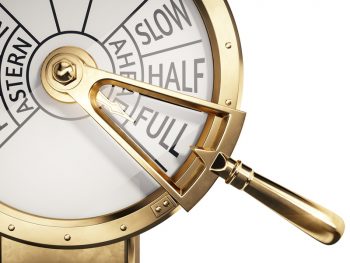
Report: 4 of 5 Gulf of St. Lawrence area right whale deaths investigated last year were caused by ship strikes
The report, compiled by the Marine Animal Response Society and Canadian Wildlife Health Cooperative, says vessel strikes caused four out of the five whale deaths investigated last year. A total of nine right whales were found dead in and around the Gulf of St. Lawrence in 2019. The report released Wednesday focused on the necropsy results for five right whales, all found dead between June and July 2019. It found vessel strikes caused the death of four of them, but the necropsy investigation could not determine the cause of death of the fifth. >click to read< 14:42
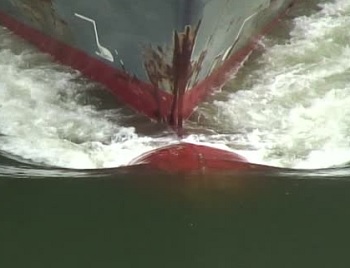
Ships not complying with right whale protections in Cabot Strait
Oceana Canada has released one week of results from its ongoing study, which is assessing data from vessels travelling inside speed restriction zones. Between May 19 and May 25, 72 per cent of vessels recorded passing through the strait between Newfoundland and Nova Scotia were observed travelling at speeds above the requested 10 knots, with the highest observed at 21.1 knots. The findings will be part of a fuller study to be released in July that will look at the first trial period of the speed restriction. >click to read< 17:55

DFO closes fishing area after right whales spotted in Gulf
DFO is implementing the first season-long fishing closure of the year after North Atlantic right whales were spotted in the Gulf of St. Lawrence. DFO says a cluster of eight grids in the middle of the Gulf will be closed until November 15. In a release, the department says the closure is expected to have minimal impacts on nearby fishing areas for crab, lobster and groundfish. >click to read< 14:52
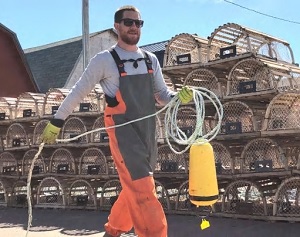
Setting day challenging but ‘better than expected’ say Malpeque fishermen
Despite a two-week delay to P.E.I.’s fishing season because of COVID-19 and added dredging challenges, Malpeque Harbour was still bustling with fishermen on setting day. The Department of Fisheries and Oceans cautioned fishermen in Malpeque Harbour that the yearly dredging effort was still ongoing, as the dredger was unable to create a clear passage through the channel that leads from the harbour to the Gulf of St. Lawrence. “After weeks of stress and sleepless nights, it went much better than expected,” said Justin Pickering, a captain who fishes from the harbour. “The wind let up last night and the dredger was able to get a little bit of a path cut through for us and we were the second boat out,” he said. >click to read< 08:13
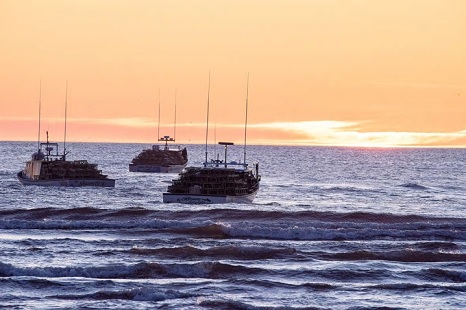
UPDATED: It’s setting day for P.E.I.’s lobster fishery after 2-week delay
Lobster fishermen are setting their traps from ports around Prince Edward Island this morning, after a two-week delay due to the COVID-19 pandemic. The spring fishery on P.E.I.’s North Shore and the eastern Northumberland Strait was delayed partly because some lobster processing plants in the region were not ready,, It will be a season like no other for fishermen: they’ll be asked questions about their health daily, are not allowed to share equipment and must wear gloves at all times. They’re required to thoroughly clean frequently-touched surfaces on board vessels, and to maintain a physical distance of two metres when possible. added photos, >click to read< 07:31
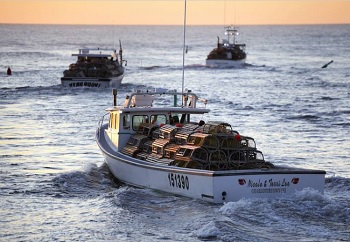 IN PHOTOS: P.E.I. lobster fishers head out on setting day following delay – P.E.I. fishers hit the water early this morning to set their lobster traps. The season finally opened on May 15 following a two-week delay due to the coronavirus (COVID-19 strain) pandemic. >click to view< 13:22
IN PHOTOS: P.E.I. lobster fishers head out on setting day following delay – P.E.I. fishers hit the water early this morning to set their lobster traps. The season finally opened on May 15 following a two-week delay due to the coronavirus (COVID-19 strain) pandemic. >click to view< 13:22
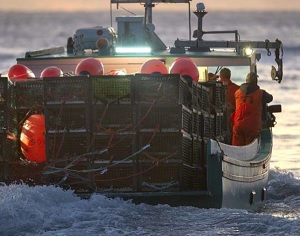
Gulf of St. Lawrence Spring lobster season begins at 6 a.m. on May 15
Fisheries and Oceans Canada says this year’s spring lobster fishery in the southern Gulf of St. Lawrence will open May 15 and close on June 30. The decision released today delays the traditional April 30 start of the season by about two weeks. The new start date covers fishing areas 23, 24 and 26A and B along the northern coasts of New Brunswick and Prince Edward Island, as well as a section of the Northumberland Strait. The season will begin at 6 a.m. on May 15 as long as weather conditions allow. >click to read< 07:34

Feds delay Snow Crab season in Gulf of St. Lawrence
The Department of Fisheries and Oceans said the decision on Thursday to pause the season will let everyone involved in the fishery to put necessary health and safety measures in place. Seafood processors in the Maritimes had called on Ottawa to delay the crab and lobster season, warning that moving ahead with fishing risks workers’ health — and the bottom line — amid the COVID-19 pandemic.,, New Brunswick Premier Blaine Higgs said Thursday the province hopes Fisheries and Oceans Canada will delay the spring season for a few weeks, with the possibility of federal compensation. The Maritime Fishermen’s Union, which represents 1,200 harvesters in New Brunswick, said Friday they support a delay of the lobster season until May 15 >click to read< 16:28
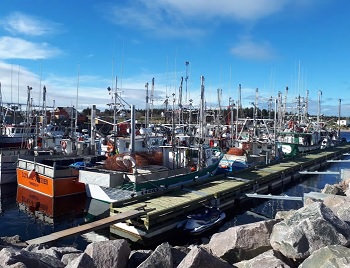
Fishermen in Eastern Quebec want season postponed to avoid Coronavirus outbreak in fishing villages
Leon Keats is set to go out to sea on April 20 to harvest crab in Zone 16A, off Anticosti Island. But the fishing captain wonders how he can do his job while respecting public health guidelines to limit the spread of the coronavirus, and without endangering residents of Kegaska, the village on the Lower North Shore, where he docks his boat during the 14-week period. “It’s unsanitary, and it’s impossible for us to live by the guidelines that Health Canada is asking us to respect right now,” said Keats. “It’s utterly impossible.” Keats and other fishermen in Eastern Quebec are asking Fisheries and Oceans Canada (DFO) to postpone the fishing season to ensure workers and residents of small fishing towns aren’t unnecessarily exposed to COVID-19. >click to read< 07:44
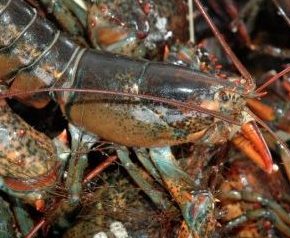
Fate of spring lobster fishery up in the air
“We recognize that current market conditions facing our industry are challenging, and the need to ensure that logistical support systems are in place to facilitate the movement and sale of seafood products.” The statement then points to the Canada Emergency Response Benefit that will pay $2,000 a month to anyone put out of work with COVID-19 as a mitigating factor. But with lobster licences going for nearly a half-million dollars in many harbours along the shore and the right to fish crab inshore going for around $130,000 per trap, that benefit doesn’t relieve the stress of recent buy-ins to this debt-driven industry. Buyers and processors also rely upon debt. >click to read< 09:19
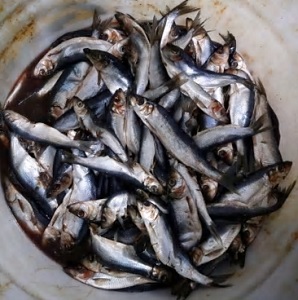
DFO report says Gulf of St. Lawrence herring that spawn in the spring in deep trouble
The grim projection was shared earlier this month by the Department of Fisheries and Oceans, just days before the spring herring fishery is set to open in Nova Scotia, New Brunswick, P.E.I. and Quebec. Predation is killing six of 10 older fish each year and a warming ocean is knocking down a critical food source for young. Spring spawners, as the population is called, have been in trouble for many years, but data gathered in 2018 and 2019 indicates very high levels of mortality, said Francois Turcotte,,, Seals, tuna and warm water, >click to read< 17:18
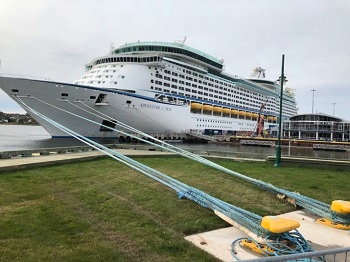
Asking? The Feds are asking!!! Fed asking ships to slow down in Cabot Strait to protect right whales
Transport Canada is trying a new voluntary speed limit in the Cabot Strait as a part of its plan to protect the endangered North Atlantic right whale.
First announced in February, the voluntary speed limit would see vessels over 13 metres long slow down to 10 knots in a portion of the Cabot Strait between April 28 to June 15 and Oct. 1 to Nov. 15.,, Another measure impacting the Cabot Strait and Gulf of St. Lawrence is the government’s push to get more marine mammal observers on board vessels throughout the region. Sanders said Transport Canada and the Department of Fisheries and Oceans are working closely with shipping companies, cruise lines and ferry operators to get trained observers on board. more >click to read< 07:03
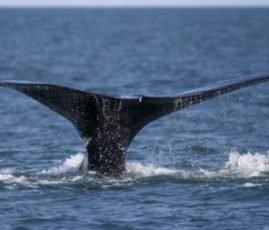
Canada unveils 2020 protection measures for North Atlantic right whales
Over the past several years, Canada has put in place comprehensive measures to help protect this species from interactions with fishing gear and vessels.,, announced the enhanced 2020 measures that will help reduce the risks to North Atlantic right whales during the 2020 season from April to November. To help prevent entanglements with fishing gear, Fisheries and Oceans Canada: will implement new season-long fishing closures in areas where whales are aggregating in the Gulf of St. Lawrence, expand temporary fishing closure areas into the Bay of Fundy, more >click to read< 07:59

DFO: Season-long fishing closures possible under new North Atlantic right whale protections
On Thursday, the Department of Fisheries and Oceans announced more protections in an effort to prevent future entanglements. “These new measures build on that work, and are informed by the latest research and technology,” said Federal Fisheries Minister Bernadette Jordan in a release.,, This year, from April to November, Fisheries and Oceans Canada will be closing fishing in areas of the gulf where whales are gathering in large numbers. If whales are detected in an area of the gulf more than once during a 15-day period, that fishing zone will be closed for fishing until the end of the season on Nov.15. Previously, the zone would be re-opened after 15 days. >click to read< 15:58
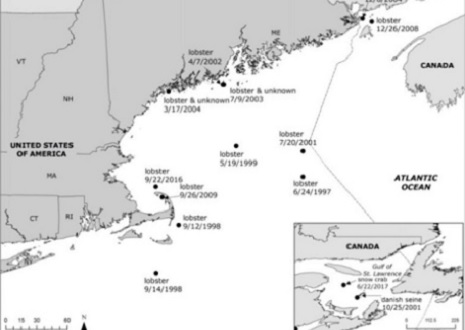
North Atlantic Right Whale: How to kill a species with Fake News, from National Geographic of all places!
“Fishing without vertical lines is what is going to save this species.“ says CT Harry of the IFAW who work hand in hand with NOAA. A ridiculous statement in view of the 18 cruise ship strikes in the Gulf of St. Lawrence (GSL) in the past few years, in all of NE over 20 years. ¼ whale per year by the lobster industry. Eighteen ship strikes in the GSL over the past 3 years averages 6 per year. These people are killing 24 whales while those people kill one. by Jim O’Connell >click to read< 13:22
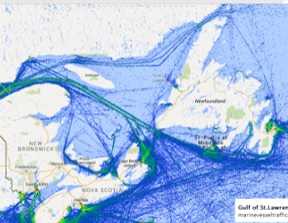 Most likely Carnival Cruise Lines is responsible for 18+ Right Whale deaths in the past 3 year, at which rate they would soon be extinct. – Human caused Right whale deaths have suddenly, in sync with a plummeting whale birthrate, put the right whale on the path to extinction. Why their birth rate, births per year, declined since a tremendous surge in 2000-2009 from 350 to 500 is unknown. In 2018 it hit bottom as no calves were born. >click to read<
Most likely Carnival Cruise Lines is responsible for 18+ Right Whale deaths in the past 3 year, at which rate they would soon be extinct. – Human caused Right whale deaths have suddenly, in sync with a plummeting whale birthrate, put the right whale on the path to extinction. Why their birth rate, births per year, declined since a tremendous surge in 2000-2009 from 350 to 500 is unknown. In 2018 it hit bottom as no calves were born. >click to read<


































